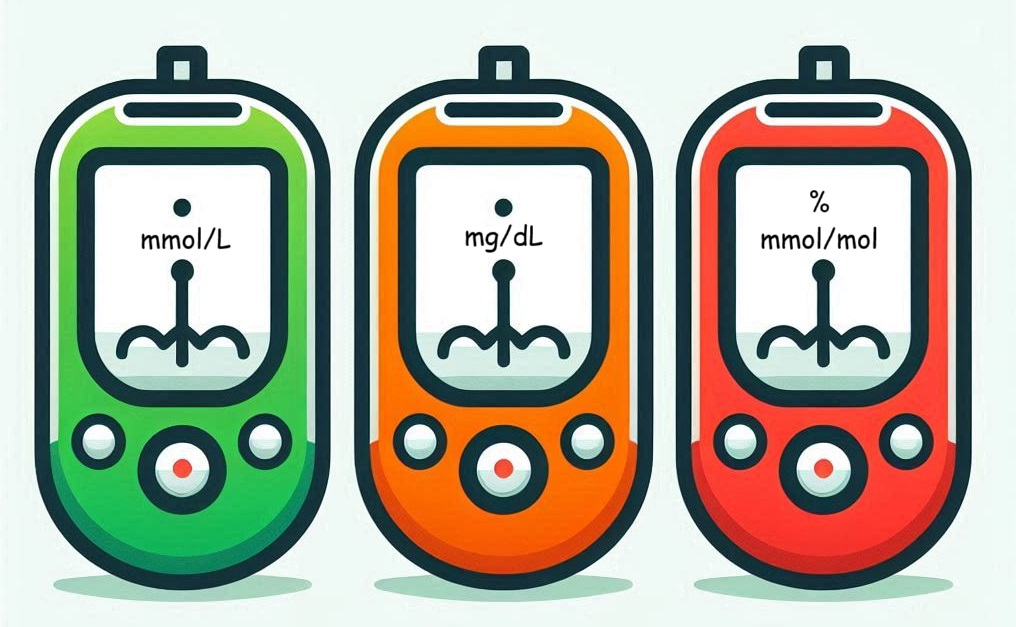Blood Sugar Levels: The Common Units Explained
You can try the handy convertor right here!
When managing blood sugar, you’ll encounter different units depending on where you are in the world. In Sweden and many parts of Europe, we use mmol/L (millimoles per litre), while in the United States, they measure blood sugar using mg/dL (milligrams per decilitre).
Alongside these short-term measurements, there is also a long-term indicator called HbA1C, which provides an overview of your average blood sugar over the past two to three months.

Common Units Around the World
Different countries use different units for measuring blood sugar:
- mmol/L (millimoles per litre): Used in Europe, Canada, Australia, and New Zealand.
- mg/dL (milligrams per decilitre): Commonly used in the United States and Japan.
Converting Between mmol/L and mg/dL
The conversion is straightforward:
- To convert from mmol/L to mg/dL: Multiply by 18.
- To convert from mg/dL to mmol/L: Divide by 18.
For example, if your blood sugar is 5.2 mmol/L, the equivalent in mg/dL would be:
5.2 × 18 = 93.6 mg/dL

What About Long-Term Blood Sugar? HbA1c (%) and mmol/mol
In addition to daily measurements of blood sugar, there’s also a long-term indicator called HbA1c, which reflects your average blood sugar levels over the past 2-3 months. HbA1c is measured as a percentage (%) in the U.S., but many other countries, including Sweden, the UK, and parts of Europe, measure it in mmol/mol (millimoles per mole).
HbA1c targets can vary depending on your healthcare provider and country. In Sweden and much of Europe, an HbA1c target of around 45 mmol/mol (about 6.3%) is typical for people managing diabetes. In the U.S., the target is often set at 7%, but guidelines may vary depending on the patient’s health status. Always consult with your healthcare provider for a target that suits your specific needs.
The two units are closely related, and you can convert between them using the following formulas:
- To convert HbA1c % to mmol/mol:
HbA1c (mmol/mol) = (HbA1c % - 2.15) × 10.929 - To convert HbA1c mmol/mol to %:
HbA1c (%) = (HbA1c mmol/mol × 0.09148) + 2.15
For example, an HbA1c of 7% is equivalent to 53 mmol/mol, and an HbA1c of 45 mmol/mol is approximately 6.3%.

 High School Chem - Incoming
High School Chem - Incoming 
Let’s break down why we multiply or divide by 18 when converting between mmol/L and mg/dL. The difference has to do with the molecular weight of glucose and the way different units measure glucose in the blood.
Molecular weight of glucose: Glucose (C₆H₁₂O₆) has a molecular weight of 180.16 grams per mole. This is important when converting between units.
mmol/L vs. mg/dL: mmol/L measures the concentration of glucose molecules in the blood, while mg/dL measures the weight of glucose in a specific volume of blood.
Here’s the formula to make it easy:
- 1 millimole of glucose weighs 180.16 mg.
- 1 litre = 10 decilitres.
- So, to convert mmol/L to mg/dL, multiply by 18 to account for these factors.
And that’s why we use 18 in the conversion.
